Holiday Calendar 2025-2026: A Comprehensive Guide to Federal Holidays
Related Articles: Holiday Calendar 2025-2026: A Comprehensive Guide to Federal Holidays
- 2025 Calendar Printable By Month: A Comprehensive Guide For Planning And Organization
- May 2025 Calendar Month
- Calendar For 2025 Year NZ
- 2025 Lee County School Year Calendar: A Comprehensive Guide
- June 2025
Introduction
In this auspicious occasion, we are delighted to delve into the intriguing topic related to Holiday Calendar 2025-2026: A Comprehensive Guide to Federal Holidays. Let’s weave interesting information and offer fresh perspectives to the readers.
Table of Content
Video about Holiday Calendar 2025-2026: A Comprehensive Guide to Federal Holidays
Holiday Calendar 2025-2026: A Comprehensive Guide to Federal Holidays

Introduction
Federal holidays are designated days of observance for the entire nation, commemorating significant historical events, cultural traditions, and religious holidays. These holidays provide an opportunity for Americans to reflect on the nation’s heritage, celebrate diversity, and enjoy time off from work and school. This article presents a comprehensive holiday calendar for 2025 and 2026, providing detailed information about each federal holiday, its history, and significance.
2025 Holiday Calendar
| Date | Holiday | Day of the Week |
|---|---|---|
| January 1 | New Year’s Day | Wednesday |
| January 20 | Martin Luther King, Jr. Day | Monday |
| February 17 | Presidents’ Day | Monday |
| May 26 | Memorial Day | Monday |
| July 4 | Independence Day | Friday |
| September 1 | Labor Day | Monday |
| October 13 | Columbus Day | Monday |
| November 11 | Veterans Day | Tuesday |
| November 27 | Thanksgiving Day | Thursday |
| December 25 | Christmas Day | Thursday |
2026 Holiday Calendar
| Date | Holiday | Day of the Week |
|---|---|---|
| January 1 | New Year’s Day | Thursday |
| January 19 | Martin Luther King, Jr. Day | Monday |
| February 16 | Presidents’ Day | Monday |
| May 25 | Memorial Day | Monday |
| July 4 | Independence Day | Saturday |
| September 7 | Labor Day | Monday |
| October 12 | Columbus Day | Monday |
| November 11 | Veterans Day | Wednesday |
| November 26 | Thanksgiving Day | Thursday |
| December 25 | Christmas Day | Friday |
Detailed Descriptions of Federal Holidays
1. New Year’s Day (January 1)
New Year’s Day marks the beginning of a new calendar year. It is a time for reflection, celebration, and setting resolutions. The tradition of celebrating New Year’s Day dates back to ancient times, with many cultures observing the occasion with fireworks, feasts, and parades.
2. Martin Luther King, Jr. Day (Third Monday in January)
Martin Luther King, Jr. Day commemorates the life and legacy of the civil rights leader. King was a prominent figure in the American Civil Rights Movement, known for his nonviolent approach to fighting for equality and justice. The holiday was first observed in 1986 and is a day of service and remembrance.
3. Presidents’ Day (Third Monday in February)
Presidents’ Day honors all presidents of the United States, past and present. The holiday was originally known as Washington’s Birthday, commemorating the birth of George Washington, the nation’s first president. Over time, it evolved into a day to celebrate all presidents.
4. Memorial Day (Last Monday in May)
Memorial Day is a day to remember and honor those who have died while serving in the United States Armed Forces. The holiday was first observed in 1868 as Decoration Day, when families decorated the graves of soldiers who had died in the Civil War.
5. Independence Day (July 4)
Independence Day commemorates the signing of the Declaration of Independence on July 4, 1776. This document declared the United States’ independence from British rule and is considered the nation’s birthday. Independence Day is a time for parades, fireworks, and patriotic celebrations.
6. Labor Day (First Monday in September)
Labor Day celebrates the contributions of American workers and the labor movement. The holiday was first observed in 1882 and is a time to recognize the hard work and sacrifices of those who have built the nation’s economy and infrastructure.
7. Columbus Day (Second Monday in October)
Columbus Day commemorates the arrival of Christopher Columbus in the Americas in 1492. The holiday has been controversial in recent years, as some argue that it should be replaced with Indigenous Peoples’ Day to recognize the contributions and struggles of Native Americans.
8. Veterans Day (November 11)
Veterans Day honors all veterans who have served in the United States Armed Forces. The holiday was originally known as Armistice Day, commemorating the end of World War I on November 11, 1918. It was later expanded to honor all veterans, regardless of the war or conflict in which they served.
9. Thanksgiving Day (Fourth Thursday in November)
Thanksgiving Day is a time to give thanks for the blessings in life. The holiday originated with the Pilgrims, who celebrated their first harvest in America in 1621. Thanksgiving Day is a time for family gatherings, feasts, and expressing gratitude.
10. Christmas Day (December 25)
Christmas Day celebrates the birth of Jesus Christ. It is a major religious holiday for Christians around the world. Christmas Day is a time for worship, gift-giving, and spending time with loved ones.
Conclusion
Federal holidays are an important part of American culture and history. They provide opportunities for reflection, celebration, and honoring the nation’s heritage and values. The holiday calendars for 2025 and 2026 presented in this article provide a comprehensive guide to these significant dates, allowing individuals and organizations to plan ahead and observe these holidays appropriately.
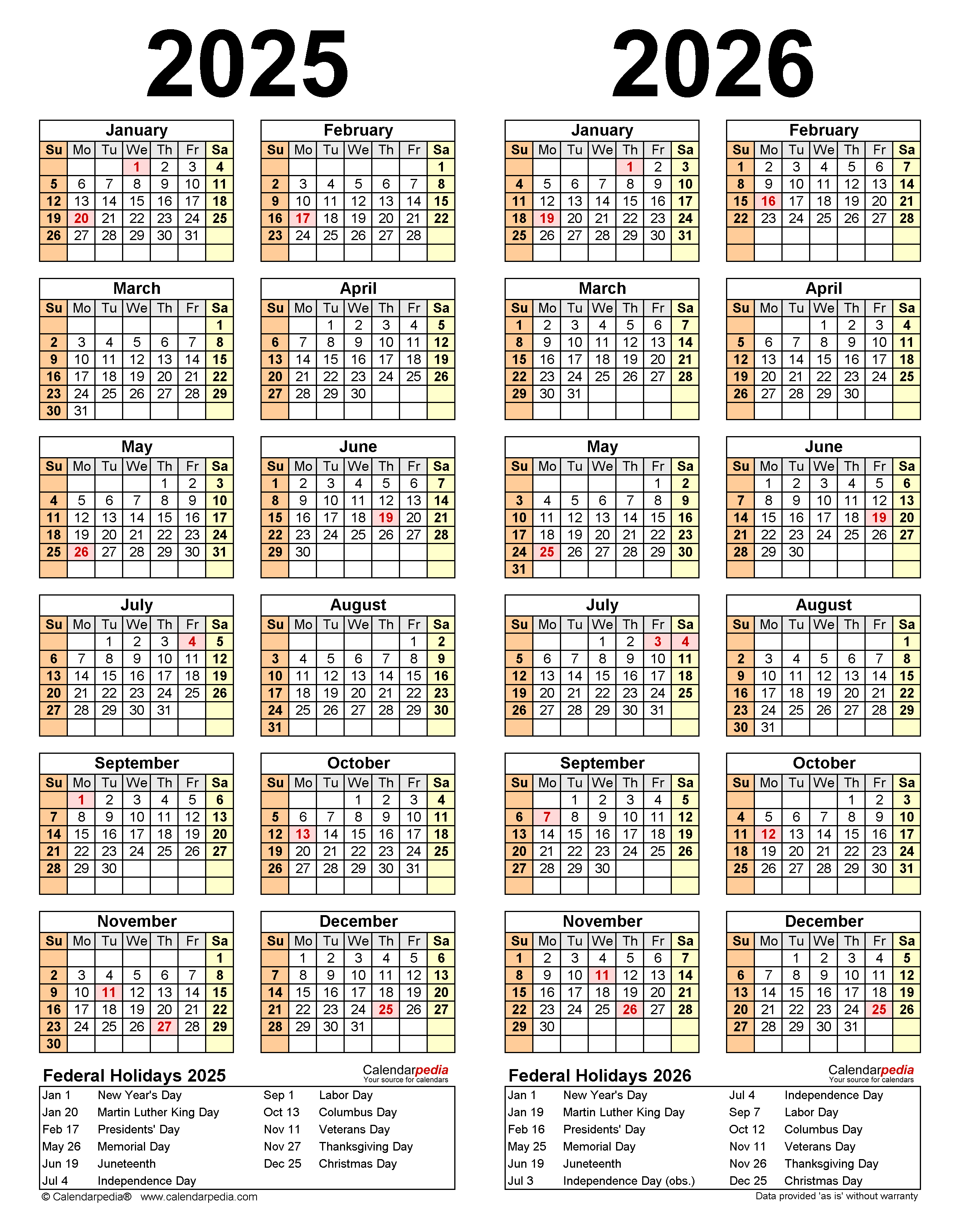
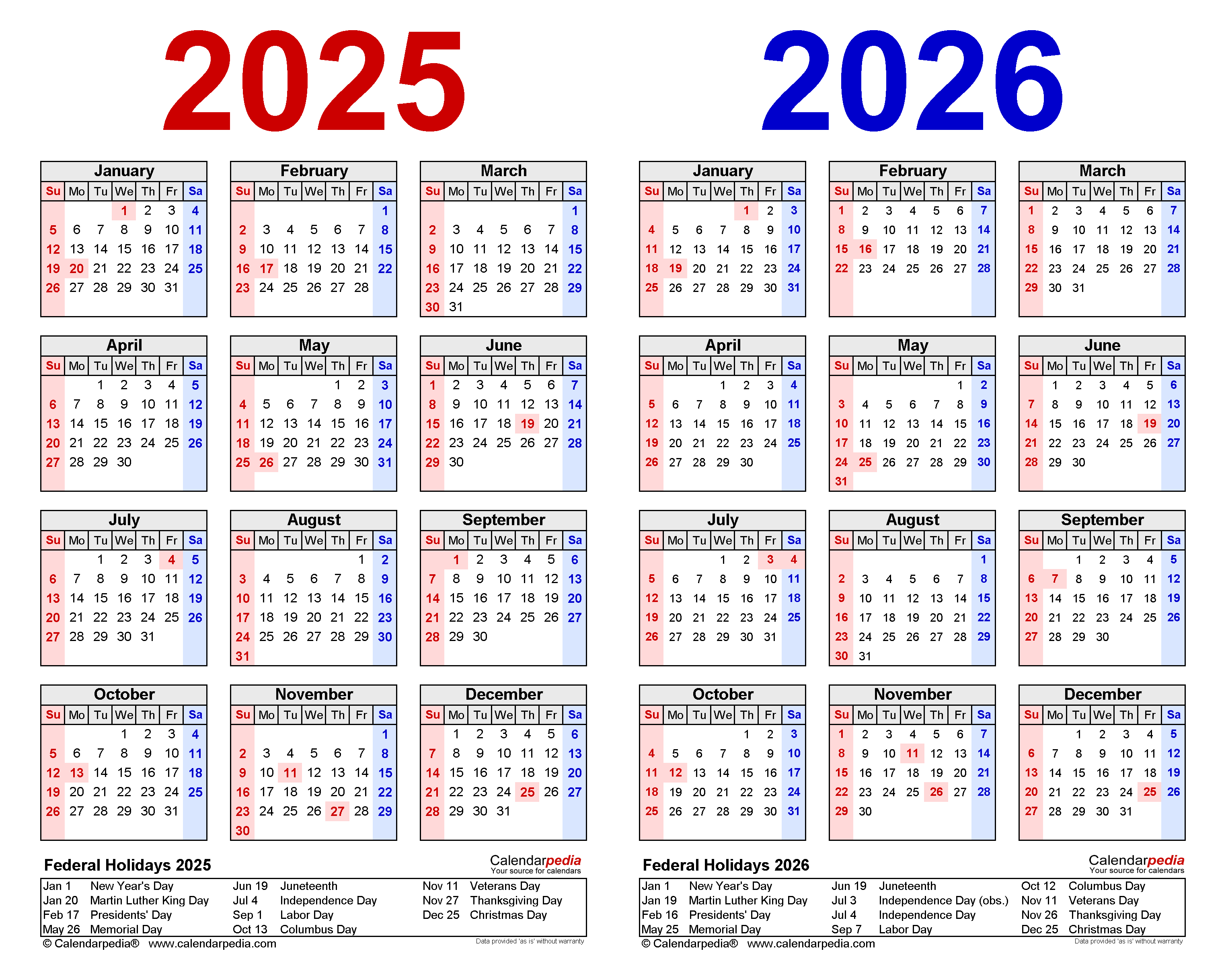
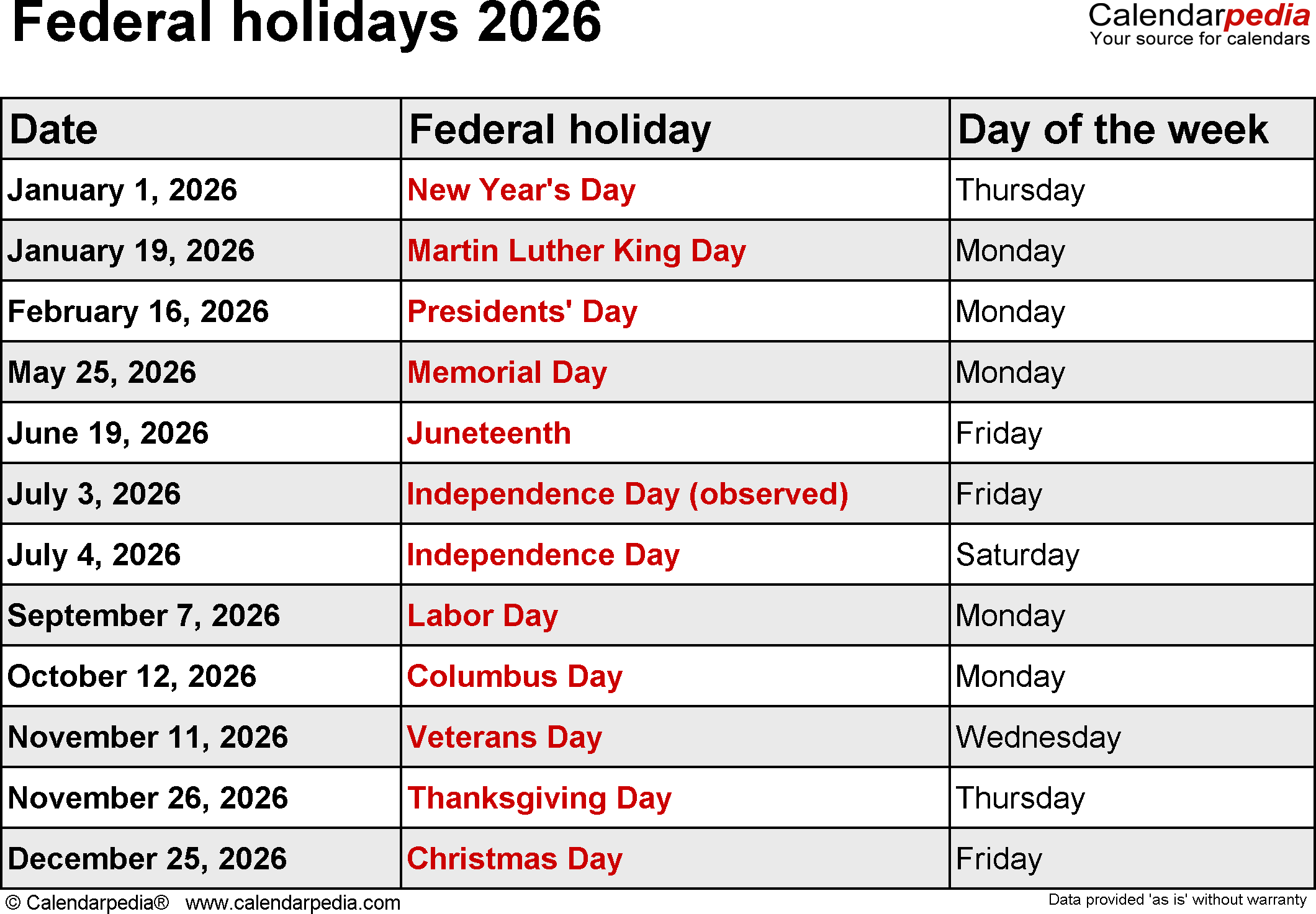

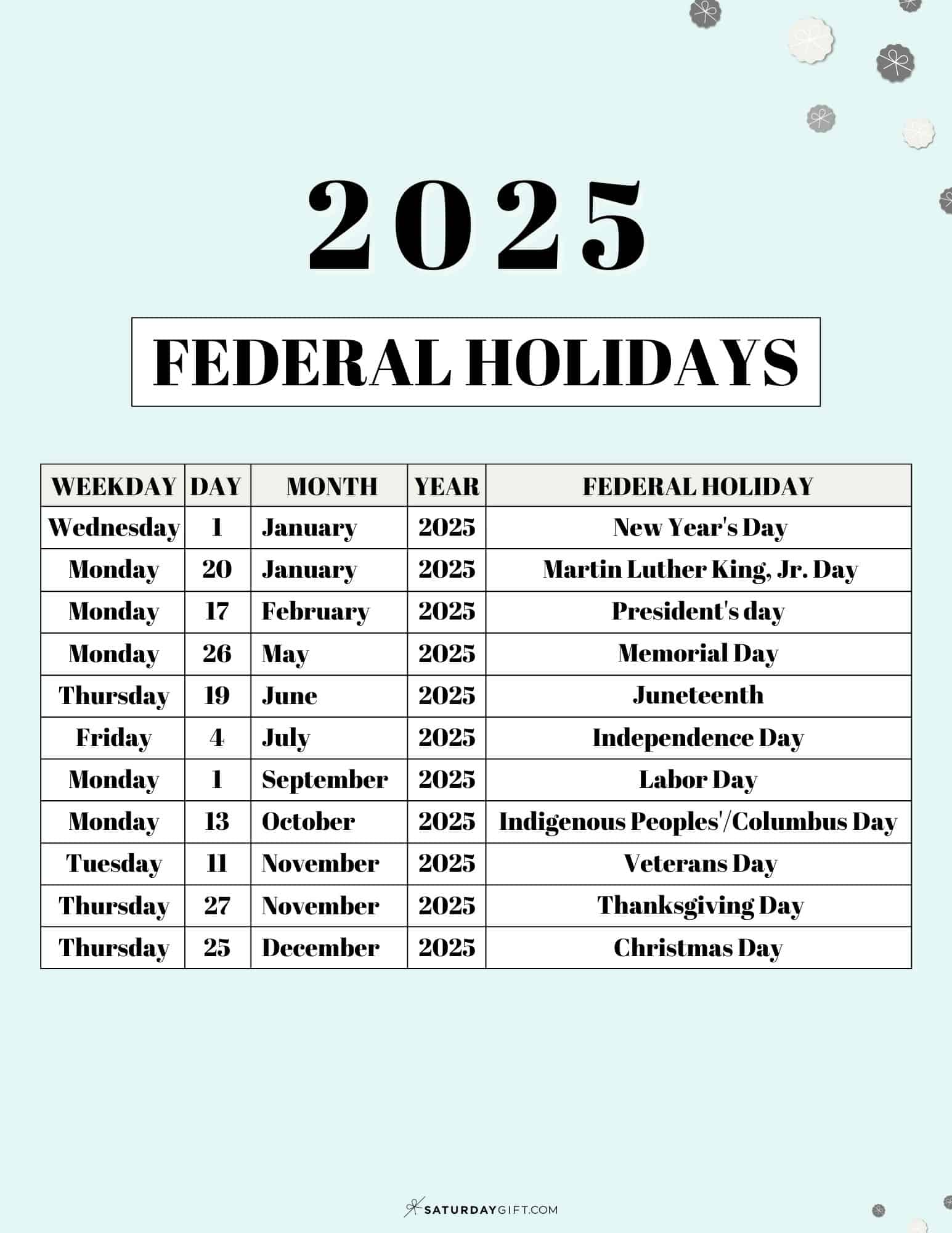
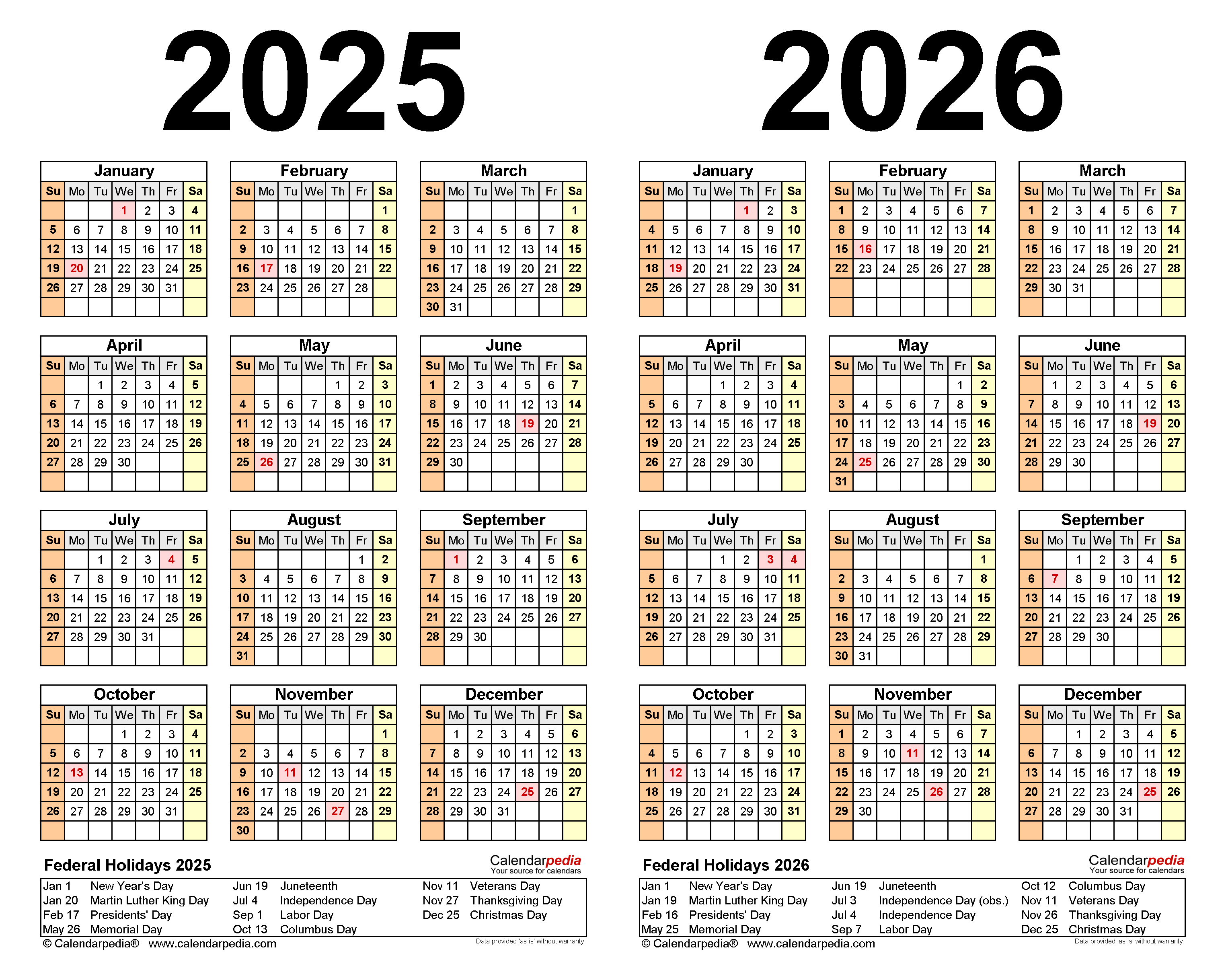
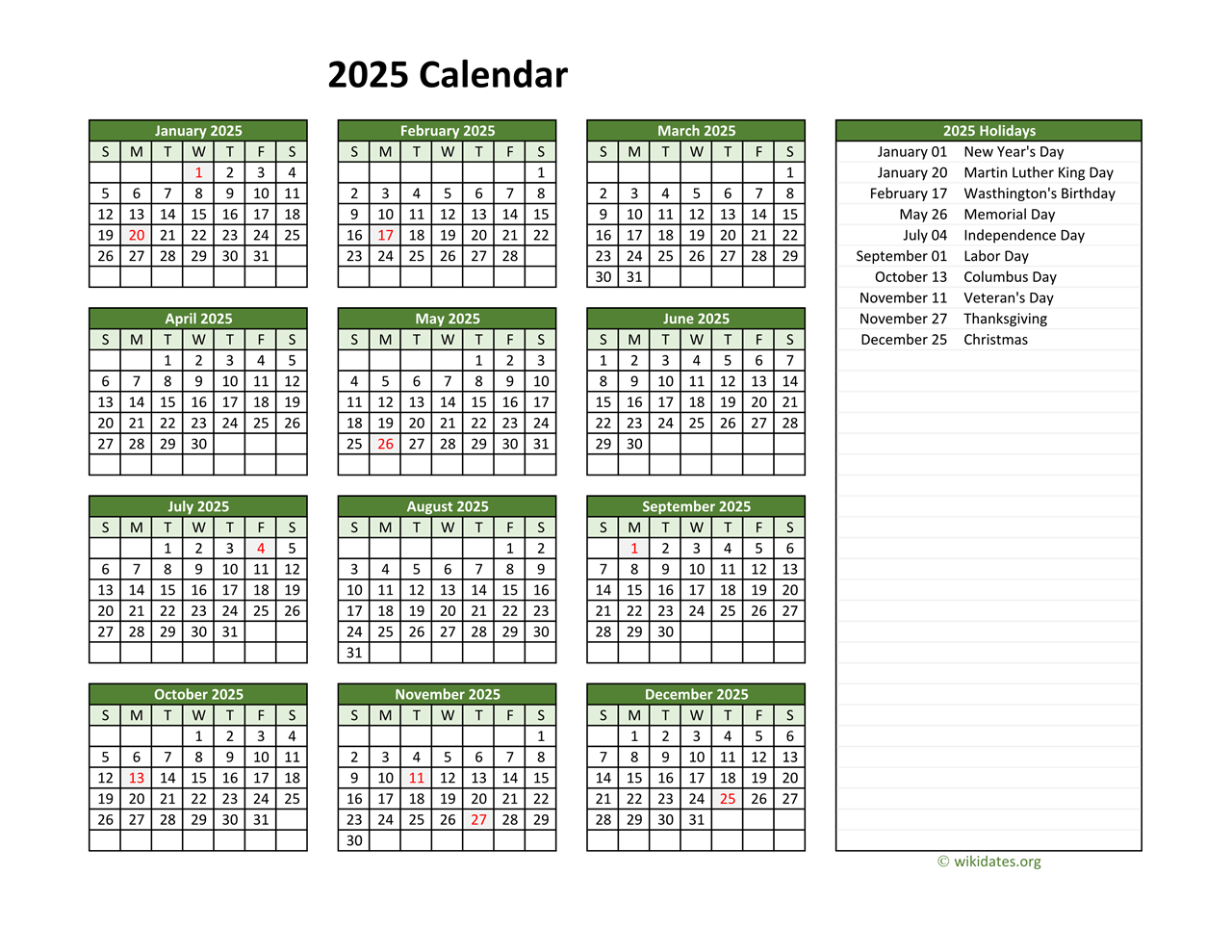
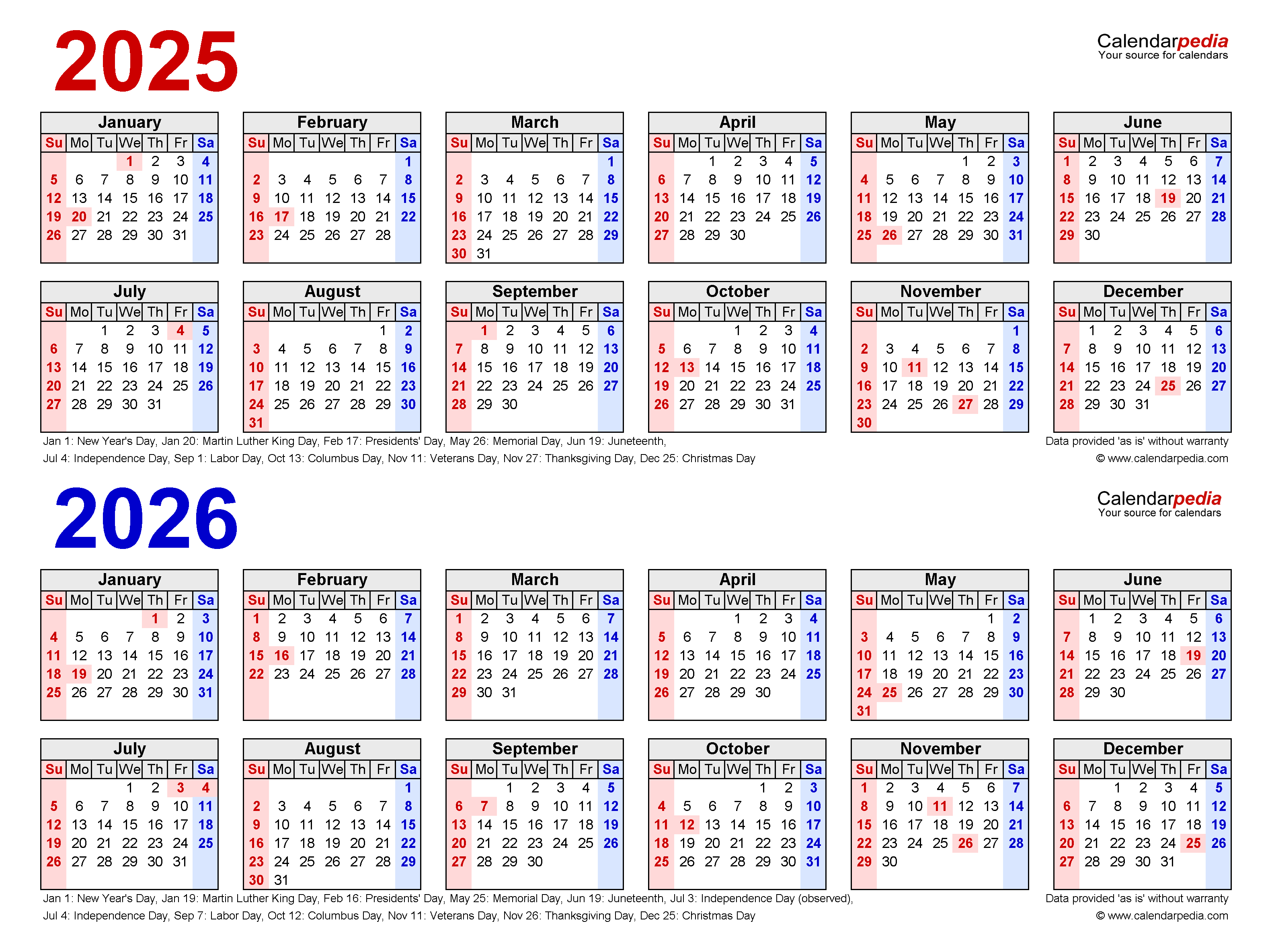
Closure
Thus, we hope this article has provided valuable insights into Holiday Calendar 2025-2026: A Comprehensive Guide to Federal Holidays. We hope you find this article informative and beneficial. See you in our next article!